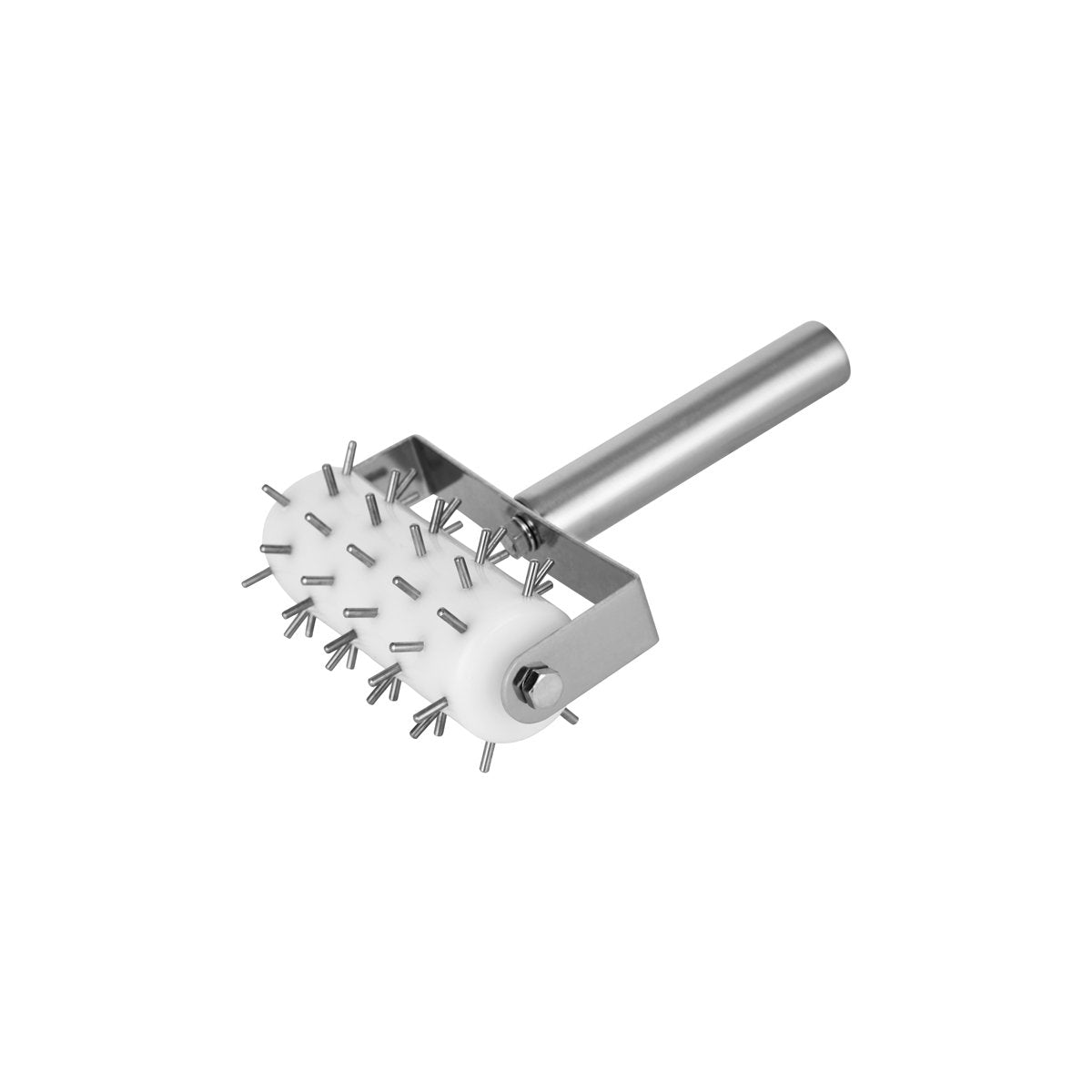Whether you’re running a professional kitchen or perfecting your homemade pizza game, getting that perfectly crisp, evenly cooked crust can be tricky. One common tool used in commercial kitchens—but often overlooked by home cooks—is the dough docker.
So, do you really need a dough docker when making pizza? The short answer: Yes—if you want a consistent, bubble-free, professional-quality crust.
Let’s break down what a dough docker does and why it might be the missing tool in your pizza-making toolkit.
What is a Dough Docker?
A dough docker is a handheld tool covered in small, sharp spikes or wheels. Its purpose is to roll over the surface of your pizza dough (or flatbreads) before baking to create tiny holes in the dough.
These holes help prevent large air pockets from forming during baking—something that can cause uneven cooking, bubbling, and burnt spots in your crust.
Key Benefits of Using a Dough Docker
1.
Prevents Air Bubbles
Large air bubbles can distort the shape of your pizza and lead to uneven toppings. A dough docker releases trapped air before baking, helping the crust stay flat and uniform.
2.
Ensures Even Cooking
When bubbles form, parts of the crust can end up undercooked or burnt. Docking ensures better heat distribution, giving you a more even bake every time.
3.
Improves Texture and Crispness
Docked dough allows steam to escape evenly, resulting in a crisper base—especially important in thin-crust or stone-baked pizzas.
4.
Saves Time in a Commercial Kitchen
In a busy pizzeria, consistency is key. A dough docker speeds up prep by preventing issues that would otherwise require manual correction mid-bake.
5.
Ideal for Par-Baking
If you pre-bake crusts or make frozen pizza bases, docking ensures the dough stays flat and maintains its shape, making storage and reheating more efficient.
Do Home Cooks Need a Dough Docker?
While not essential for every kitchen, home cooks looking for pizzeria-quality results will benefit from using a docker—especially when working with:
- Thin-crust pizzas
- Flatbreads or focaccia
- Pre-baked pizza shells
Tip: If you don’t have a docker yet, you can use a fork to prick the dough—but it’s less consistent and more time-consuming than using the real tool.
Choosing the Right Dough Docker
Look for a durable, food-safe plastic or stainless steel docker with a comfortable handle. For high-volume kitchens, larger dockers with rolling wheels save even more time and effort.
Final Thoughts: Is a Dough Docker Worth It?
If you’re serious about pizza—whether at home or in a commercial setting—a dough docker is a small investment with big results. It helps you avoid bubbles, cook more evenly, and produce consistently professional-looking pizzas.
So yes, you probably do need a dough docker when making pizza—especially if you want restaurant-quality results every time.










